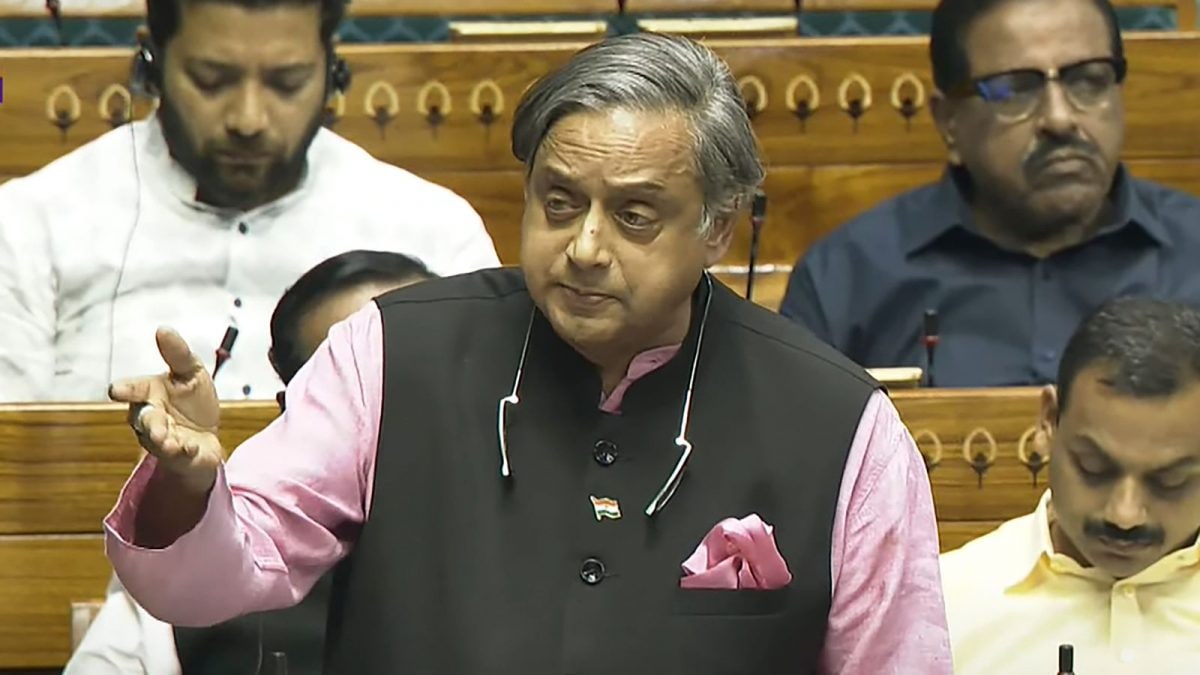
Shashi Tharoor Questions Indian Government on US Tariffs Impact
India stands at a pivotal moment in its trade relationship with the United States, as escalating tariffs have cast a shadow over economic interactions between the two nations. Recently, Indian politician and public intellectual, Shashi Tharoor, raised significant questions about the impact of these US tariffs on India’s economy and economic policy. His concerns highlight the need for a strategic approach by the Indian government to navigate the complexities of this evolving trade landscape.
Understanding the Context of US Tariffs
The imposition of tariffs by the United States has emerged as a significant challenge for global trade partners. For India, these tariffs have created a ripple effect impacting various sectors. The tariffs, primarily imposed on steel and aluminum, have broader implications that affect industries reliant on these materials.
The necessity to address these challenges is paramount because these tariffs can lead to increased production costs, reduced competitiveness, and ultimately impact the Indian economy's growth trajectory. Consequently, understanding the full implications of these tariffs is crucial for formulating a robust response.
Shashi Tharoor’s Crucial Question
Amidst these developments, Shashi Tharoor has posed a fundamental question to the Indian government: What measures are being taken to mitigate the negative impacts of these US tariffs on India? This inquiry underscores the urgency with which India must approach the current trade scenario.
Tharoor emphasized the importance of strategic policy-making to safeguard India's economic interests. His question seeks to understand not only the immediate action plan but also the long-term strategy that India intends to adopt in response to US tariffs.
The Impact on Indian Industries
The US tariffs are creating a significant impact on a range of Indian industries. From steel production to technological sectors, the reverberations are widespread. For instance, the increased cost of raw materials due to tariffs has burdened Indian manufacturers who rely on exports to thrive in competitive global markets.
Additionally, the tech sector, which often benefits from a collaborative US-India relationship, might face challenges as these tariffs could disrupt supply chains and pricing structures. The potential for decreased competitiveness poses a threat not only to specific industries but also to India's broader economic stability.
Government’s Strategy and Response
In light of Tharoor's question, the Indian government faces the challenge of crafting a multi-faceted response strategy. A proactive approach could involve various strategies, including engaging in diplomatic dialogues to negotiate tariff reductions or removals. Furthermore, strengthening domestic industries to reduce their reliance on imports may offer a buffer against such external economic shocks.
Developing economic policies that enhance self-reliance and invest in local production capacities can empower Indian industries to withstand global trade fluctuations. The need for targeted support to affected sectors is evident, ensuring that they can adapt and thrive despite the imposition of tariffs.
Navigating the Global Trade Terrain
Navigating the current global trade terrain requires more than just immediate reactive measures; it necessitates strategic foresight. The evolving trade relationship with the US should be viewed as an opportunity for India to redefine its national economic strategy.
Establishing diverse and resilient trade partnerships is essential for India to reduce its vulnerability to fluctuations in traditional markets. Strengthening ties with alternative global partners can provide a safety net and open new avenues for economic growth and collaboration.
The Role of Leadership and Diplomacy
Effective leadership and diplomacy play a central role in managing the impact of US tariffs. As such, India's government must leverage diplomatic channels to actively engage in trade negotiations with the United States. Such talks could address the specific concerns of both nations and work towards finding mutually beneficial solutions.
Engaging in collaborative discussions with the aim of reaching compromises ensures that both nations' economic interests are considered. This diplomatic approach can pave the way for a more stable trade relationship, potentially fostering an environment conducive to reducing tariff barriers.
Engaging the Private Sector
The role of the private sector in mitigating the impact of US tariffs cannot be overstated. Working alongside the government, private enterprises possess the agility and innovation needed to adapt to changing market conditions. Encouraging public-private partnerships can yield innovative solutions to counteract the negative effects of tariffs.
Investing in research and development within impacted sectors can lead to the creation of new technologies and processes that enhance efficiency and competitiveness. Collaboration between government agencies and industry leaders can foster a resilient economic foundation capable of navigating tariff-related challenges.
The Road Ahead
As Shashi Tharoor invokes critical introspection on India's response to US tariffs, the need for a comprehensive and strategic plan becomes evident. This situation presents a unique opportunity for India to enhance its economic resilience and redefine its approach towards international trade relationships.
The path forward involves meticulous planning and execution of policies that foster economic growth while protecting national interests. By leveraging diplomacy, engaging the private sector, and investing in domestic capacities, India can not only address the immediate challenges posed by US tariffs but also strengthen its position in the global trade arena.
Conclusion
In conclusion, the query raised by Shashi Tharoor regarding India's response to US tariffs is a crucial call to action. As India navigates this complex trade landscape, the government must craft a strategic plan that addresses immediate concerns while laying the foundation for sustainable economic growth. With a blend of diplomatic efforts, policy innovation, and private sector engagement, India can effectively manage the impact of US tariffs and emerge stronger on the global economic stage.


